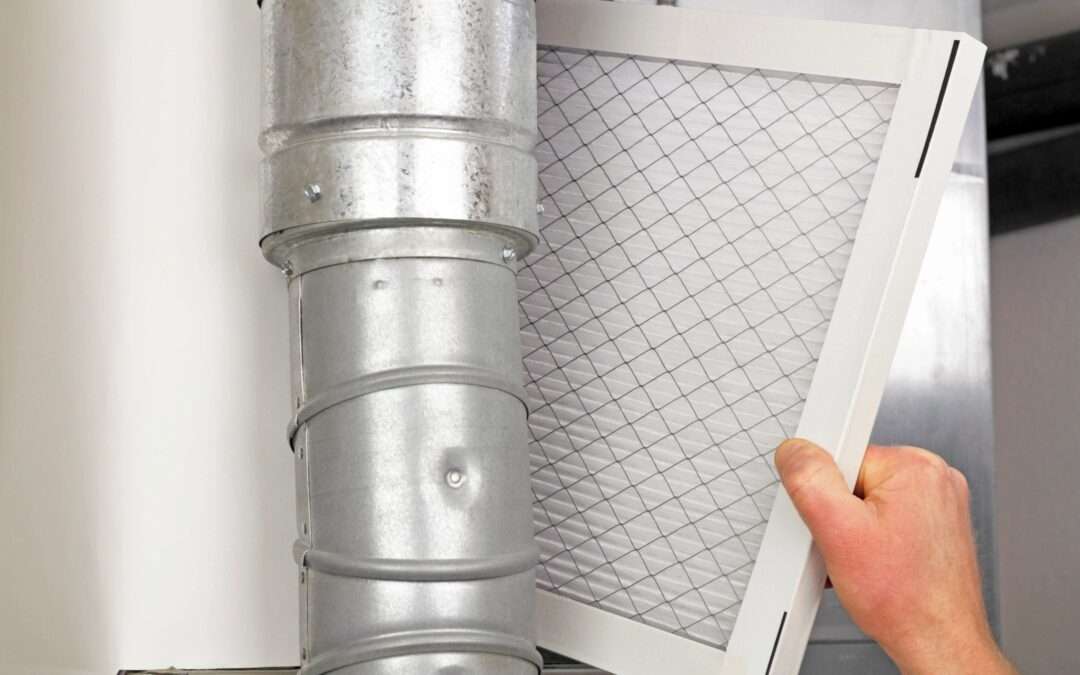Changing the air filters on a routine basis is essential for the HVAC system’s maintenance. Air filters help to maintain the efficiency and effectiveness of your heating and cooling system. By selecting the right air filter for your home or building and regularly changing it, you can improve the air quality, extend the life of the HVAC system, and save on energy bills. When shopping for air filter replacements, you might feel overwhelmed because many filters are available for use with your air conditioner, furnace, or heat pump. So, we’ll discuss the different types of air filters and explain which might be best for your North Texas home or building.
Before discussing the different types of air filters, it’s essential to know a couple of things.
What is the function of an air filter?
An HVAC air filter is designed to remove pollutants, dust, and other particles from the air that circulates through the HVAC system in a building. Its primary purpose is to improve indoor air quality by capturing unwanted particles that can cause allergies, asthma, and other respiratory problems. Additionally, HVAC air filters protect the HVAC equipment by trapping dirt, dust, and debris, which can cause damage to the system over time. Regular replacement of the air filters helps maintain efficiency and prolong the lifespan of the HVAC system.
What is a MERV rating?
Minimum Efficiency Reporting Values, or MERV, report a filter’s ability to capture particles. The American Society of Heating, Refrigeration, and Air Conditioner Engineers (ASHRAE) created this value system. The filter’s rating value range from 1 to 16. The greater the MERV rating, the more efficient the air filter. Higher-rated filters can trap smaller particles, including viruses, making them more efficient.
According to ASHRAE, the best rating for residential HVAC systems is MERV-13. Though there are filters that rate higher than 16, it is critical to determine if your heating and cooling equipment can handle higher-MERV filters before buying or installing one. Higher-MERV air filters are very thick and can reduce airflow inside your HVAC system. Improperly sized filters force your HVAC unit to work harder and can cost you more in the long run. For this reason, picking the right air filter is essential.
Types of Air Filters for HVAC Systems
There are several types of air filters, and it’s essential to know the difference between them.
- Washable Filters: Washable filters can be re-used repeatedly but must be washed multiple times yearly due to their low MERV rating. These air filters reduce waste but are ineffective at filtering out smaller particles.
- Fiberglass Filters: These budget-friendly filters are composed of fiberglass material that filters out airborne particles passing through the HVAC system. However, fiberglass filters have low MERV ratings and are ineffective in removing small particles from the indoor air supply. They also have to be replaced more often than the other types of filters.
- Pleated Filters: Pleated filters use cotton or polyester fiber material for filtration. The pleated folds provide more surface area to trap contaminants making it more efficient in removing fine particles from the air. They are usually more expensive than fiberglass filters but usually give users a longer filter life than lower-quality filters.
- HEPA filters: A high-efficiency particulate air (HEPA) filter can trap small, harmful particles such as pollen, pet dander, smoke, and dust mites. HEPA filters are found in air purifiers or vacuum cleaners.
Which Filter is Right for my HVAC?
Many factors influence the right air filter for your home or building’s HVAC system. Factors can include:
- Size of your home: The size of your home will determine the size of the air filter you need. Most HVAC systems have the filter size listed in the owner’s manual or on the existing filter.
- Type of HVAC system: The type of HVAC system you have will also determine the type of filter you need. Some systems use larger filters, while others use smaller filters. Consult the owner’s manual or contact an HVAC professional to determine your system’s correct type and filter size.
- Personal needs and preferences: If you or someone in your household has allergies or asthma, consider using a higher MERV (Minimum Efficiency Reporting Value) rated filter, which can capture smaller particles such as pet dander, pollen, and mold spores.
- MERV rating: MERV rating is a standard measurement of a filter’s ability to remove particles from the air. The higher the MERV rating, the better the filter captures smaller particles.
We recommend consulting a professional HVAC technician to ensure you use the right filter for your HVAC system and needs. Using the wrong filter can damage the HVAC system and not provide the desired air quality.
Select the Right Filter for Your HVAC System
Are you curious about which filters are suitable for use with your HVAC equipment? Speak with an HVAC professional to learn more about your air filter options today, and contact Freedom Heating & Air at 214-306-8456.


